Taking Real Life Risks
Alumni Share Experiences, Discuss Decisions to Not Go to College Straight Away
Photo Courtesy of: Taylor Lavine
2014 alumna Taylor Lavine poses with children in Africa, where she lived for a month. “I was humbled living here,” Lavine said. “All [of us] students had to live with host families.”
February 14, 2020
While there are graduates who choose to attend college after high school, some chose a different path for themselves. From internships to joining the workforce to taking a gap year, here are three former students who chose to try their hand at the real world before or instead of college.
After graduating in 2018, Mathew Juarez, like many planned on taking classes at Austin Community College (ACC) before officially enrolling in a university to save money on the more basic classes. Deciding to make some money over the summer as well, Juarez enrolled in the Samsung Austin Semiconductor (SAS) high school graduate program, where he worked as a contracted intern helping the technicians and PM team perform preventative maintenance (PMs) on the photolithography tools. While doing this work he was also required to work on a project that would be evaluated at the end of the summer and would determine if they would keep him as an apprentice. After being selected to stay, the company allowed him to work 24 hours a week and reimbursed for his college tuition and other educational costs.
“It made sense to me to do [the program] because I wasn’t planning on moving away for college just yet,” Juarez said. “Since I was just going to be staying at ACC I figured I’d be able to save up the money that I’d make from SAS, gain some experience in the engineering field and save money on tuition since ACC is significantly less expensive than your traditional four-year university.”
Currently studying at the University of Texas at San Antonio and halfway to getting his bachelor of science in mechanical engineering, Juarez said that leaving Samsung was a difficult decision but in the long run it was necessary to make it for himself and the future of his education.
“That was my first real big ‘adult’ decision,” Juarez said. “It showed me that I need to be selfish in the fact that I can’t be nice and let others dictate what I do with my life. While my time at Samsung was beneficial to me, providing me with engineering tech experience and a job to pay for school, I had to leave to continue to pursue my goal.”
Another alumna taking time to gain experience and knowledge in their craft is 2019 alumna Deana Trautz. Currently taking ACC courses to get her core credits out of the way, Trautz said she wanted to find a way to continue writing and doing journalism outside of school so that she didn’t lose touch with what she loved.
“A month after I graduated, I contacted editors at several local newspapers asking if I could freelance for them,” Trautz said. “I was thrilled when I got a callback and ended up starting my freelance reporting at two Austin American-Statesman editions — the Round Rock Leader and Pflugerville Pflag. Working at these newspapers has been an invaluable experience and has allowed me to learn by doing, which I think is so important towards growth.”
Having written about things like two restaurant owners escaping Vietnam, a Korean man who’s father’s remains were identified and brought back from North Korea, and a same-sex couple who went through a second-parent adoption to ensure full legal parental rights, Trautz said that writing in the professional world is very different than she expected but that it has allowed her to learn and have experiences she never could have imagined.
“It has truly been an honor to connect with people and give them a voice through my writing,” Trautz said. “Having that connection and vulnerability with others is a major reason why I have always loved what I do. Every story I have worked on has taught me something new and brought me closer to people I may have never come in contact with. I couldn’t be more glad that I went the less typical route and jumped into the journalism field fresh out of high school.”
A little more unsure about what she wants from the future of her education, 2014 alumna, Taylor Lavine, took what’s called a KIVU gap year where the organization a student works with plans out the entire year. First semester students work internships in the U.S. and second-semester students are sent to a variety of many cities in the world and work jobs.
Lavine began her fall semester in Denver and has traveled to Bohol in the Philippines, Kigali, Rwanda, Israel and Jordan. Working at a nonprofit with the rest of her group for the first semester, and also taking classes that take a deeper look at human nature, Lavine said that she learned a lot about both herself, and how to survive in the world.
“I loved the classes we did because it helped me understand how to work with others and understand how they think,” Lavine said. “The internship was neat but it also showed me what I didn’t want to study in school because I wasn’t totally passionate about it. During the week we had to cook meals for each other, we had to take public transportation, and we had to work. It quickly taught me how to grow up and take responsibility.”
Lavine said that choosing to take a gap year was a hard decision to make as it had never really fallen into the plan she had after high school. In the end, she realized that she needed time for herself before diving back into her education.
“When I was [in high school], my plan [during] junior year was to go to Ole Miss and study business, I had no idea gap years even existed,” Lavine said. “At first, I was ashamed to want to take this route because people and friends thought it was odd for me to do because it didn’t look like everyone else. In America, we have this mentality to always want more or the new version of ‘things’, and in the places, I traveled to they didn’t care about any of that; they cared for their family, good health and pure joy.”
More than anyone, people like Juarez, Trautz and Lavine know what it’s like to be unsure of the future. Juarez wants future high school graduates to know that it doesn’t have to be as rushed as it seems to be.
“You’ll probably figure out when you graduate, nothing really goes to plan,” Juarez said. “Weigh the different options whether its community college, trade school, a university or just going straight into working. It’s good to have a general idea of what you wanna do but if things change they’re gonna change whether you like it or not. You [have to] be willing to make do with the situation that you’ve got and make the decisions that you think will take you in the direction that you’re wanting to go.”



![Jumping off the ground, senior linebacker Bennett Patton snatches the ball out of the air for an interception at Thursday’s game against Chaparral. Patton had two interceptions in the 56-14 victory, tying the school record for interceptions in a game. “I was just playing the game,” Patton said. “[I’m] going to go into next week, forget about it and stay humble.” Photo by Harper Chapman](https://cphswolfpack.com/wp-content/uploads/2025/09/bennett-interception.jpg)
![The fire department came to the school after students were evacuated when smoke started coming from the ceiling of a classroom. All students and staff are safe. “All of my friends left their stuff too, so we couldn’t contact our parents, and it was stressful,” senior Brynn Fowler said. “It was scary because I didn’t know [what was going on], and I couldn’t find anyone because it was a big crowd.” Photo by Anthony Garcia](https://cphswolfpack.com/wp-content/uploads/2025/09/firetruck.jpg)


![Sitting with her friend senior Sohpia Struve at last year’s Austin City Limits Festival, senior Ava Zuniga poses for a picture under a pavilion. They are frequent attendees at ACL, an annual music festival at Zilker Park. “I would recommend seeing a bunch of people,” Zuniga said. “This past year, we camped out for Chappell [Roan] for a really long time. I think the whole point of ACL, [which] is a lot of fun, is that you can go see so many different people, even if you don’t know them. So by camping by one person, it really limits yourself from being able to go see a bunch of people.” Photo courtesy of Ava Zuniga](https://cphswolfpack.com/wp-content/uploads/2025/10/EE9E9484-FE6F-4AA0-B5F5-0C177AB32841-1200x857.jpeg)
![Broadcast, yearbook and newspaper combined for 66 Interscholastic League Press Conference awards this year. Yearbook won 43, newspaper won 14 and broadcast took home nine. “I think [the ILPC awards] are a great way to give the kids some acknowledgement for all of their hard work,” newspaper and yearbook adviser Paige Hert said. “They typically spend the year covering everyone else’s big moments, so it’s really cool for them to be celebrated so many times and in so many different ways.”](https://cphswolfpack.com/wp-content/uploads/2025/05/edited-ILPC.jpg)




![Looking down at his racket, junior Hasun Nguyen hits the green tennis ball. Hasun has played tennis since he was 9 years old, and he is on the varsity team. "I feel like it’s not really appreciated in America as much, but [tennis] is a really competitive and mentally challenging sport,” Nguyen said. “I’m really level-headed and can keep my cool during a match, and that helps me play a bit better under pressure.” Photo by Kyra Cox](https://cphswolfpack.com/wp-content/uploads/2025/09/hasun.jpg)


![Bringing her arm over her head and taking a quick breath, junior Lauren Lucas swims the final laps of the 500 freestyle at the regionals swimming competition on date. Lucas broke the school’s 18-year-old record for the 500 freestyle at regionals and again at state with a time of 4:58.63. “I’d had my eye on that 500 record since my freshman year, so I was really excited to see if I could get it at regionals or districts,” Lucas said. “ State is always a really fun experience and medaling for the first time was really great. It was a very very tight race, [so] I was a bit surprised [that I medaled]. [There were] a lot of fast girls at the meet in general, [and] it was like a dogfight back and forth, back and forth.” Photo by Kaydence Wilkinson](https://cphswolfpack.com/wp-content/uploads/2025/03/Kaydence-2.7-23-edit-2.jpg)
![As the support team sits and poses for a photo in the cafeteria with the counseling team they eagerly wait to start their day. "We [all] seem to be a team, I get up every day and there's days where I don't want to go to work today, but I'm thankful that I have a job and I'm blessed to have what I have," Christopherson said. Photo Courtesy of Julie Weltens.](https://cphswolfpack.com/wp-content/uploads/2025/01/AF9E8470-10D7-4C91-BF28-EC8F86BAB66C-1200x852.jpeg)
![Officer Stephanie Cash is in her second year as an SRO at CPHS. “Seeing [students] grow over the years has been kind of cool,” Officer Cash said. “Freshmen that [are] all over the place and then in the next couple of years get a little more squared away and go to class and do work and start thinking about the future. Being a part of a student's growth is the best way to measure my success as an SRO.” Photo Courtesy of Cedar Park Police Department's PIO, Alicia Gallagher.](https://cphswolfpack.com/wp-content/uploads/2024/12/CPHS-SRO-900x1200.jpg)
![As he sprints with the ball, senior running back Trae Hill breaks a tackle during Friday’s 35-14 loss against the Vandegrift Vipers. Hill ran for 135 yards and two touchdowns during the game. “[Scoring] was electric,” Hill said. “It always feels good to score, but the O-line did everything.”](https://cphswolfpack.com/wp-content/uploads/2025/09/IMG_0795allie.varfb_-1200x799.jpg)














![2014 alumna Taylor Lavine poses with children in Africa, where she lived for a month. "I was humbled living here," Lavine said. "All [of us] students had to live with host families."](https://cphswolfpack.com/wp-content/uploads/2020/02/IMG_5427.jpg)
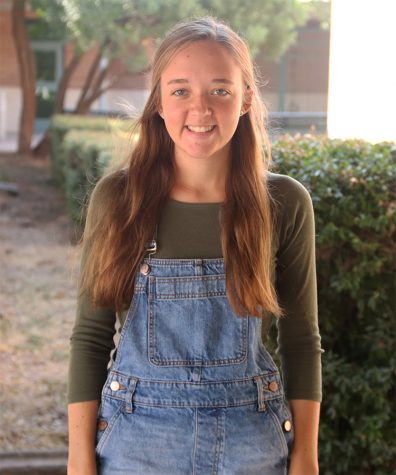
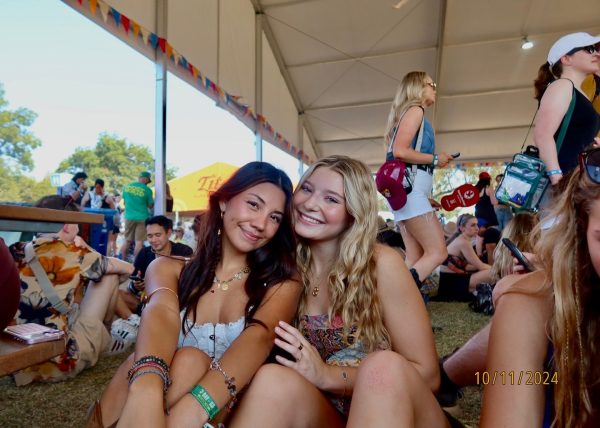
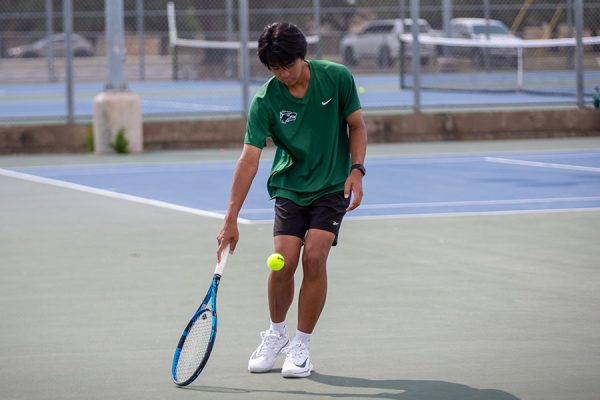
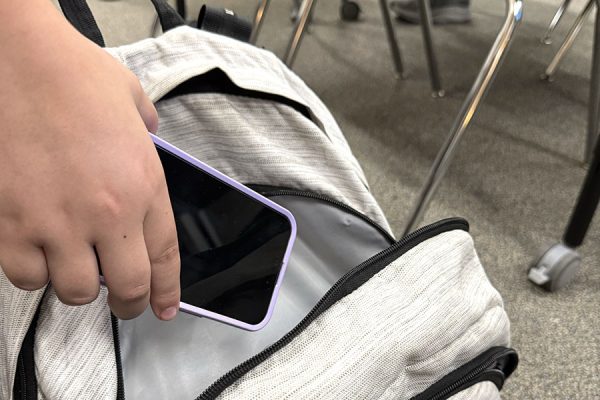
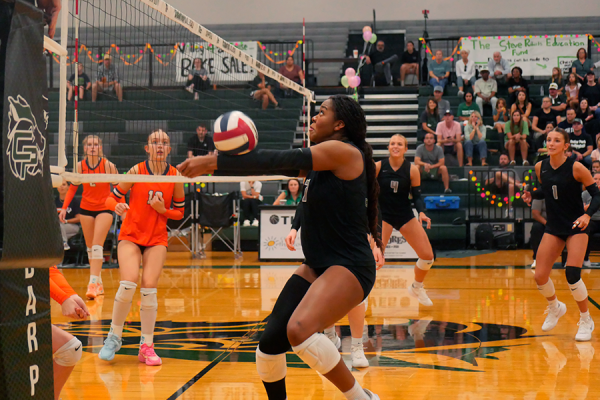
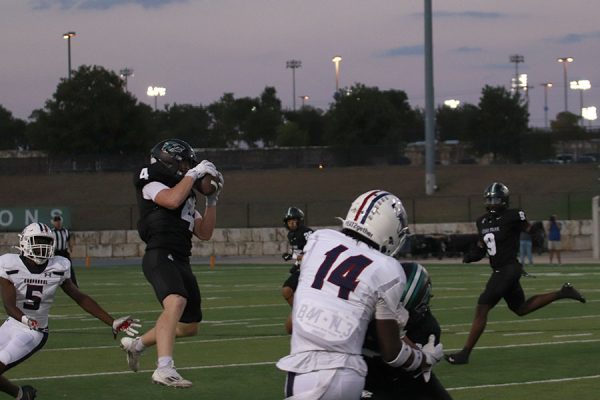
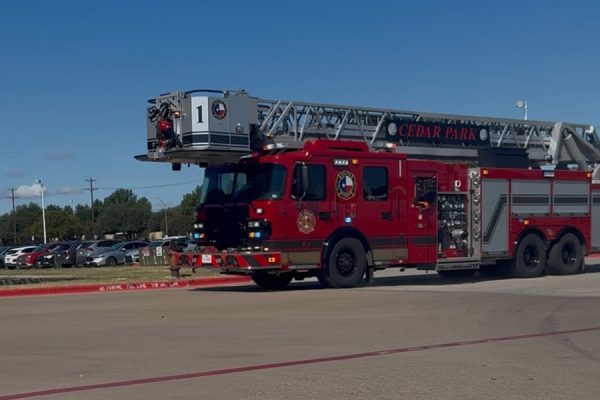
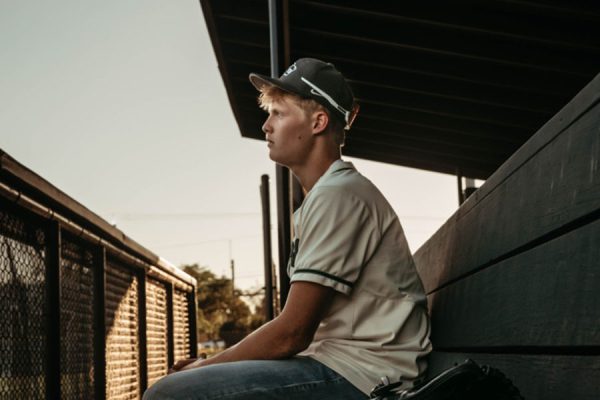

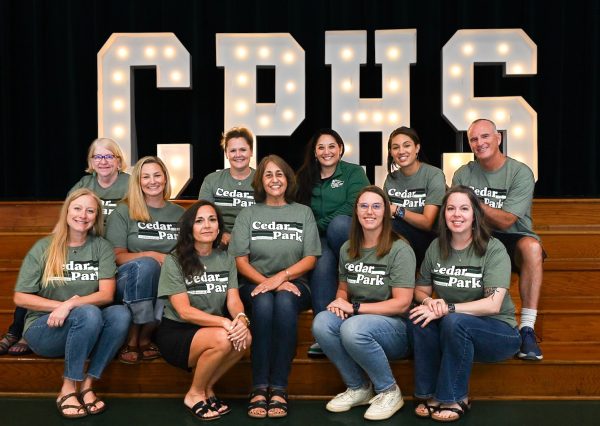
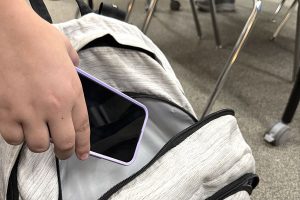
![The fire department came to the school after students were evacuated when smoke started coming from the ceiling of a classroom. All students and staff are safe. “All of my friends left their stuff too, so we couldn’t contact our parents, and it was stressful,” senior Brynn Fowler said. “It was scary because I didn’t know [what was going on], and I couldn’t find anyone because it was a big crowd.” Photo by Anthony Garcia](https://cphswolfpack.com/wp-content/uploads/2025/09/firetruck-300x200.jpg)
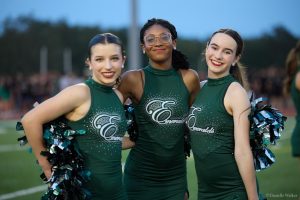
![Finishing her night out after attending a local concert, senior Grace Sauers smiles at the camera. She recently started a business, PrettySick, that takes photos as well as sells merch at local concert venues. Next year, she will attend Columbia Chicago College majoring in Graphic Design. “There's such a good communal scene because there [are] great venues in Austin,” Sauers said. “I'm gonna miss it in Austin, but I do know Chicago is good, it's not like I'm going to the middle of nowhere. I just have to find my footing again.” Photo Courtesy of Grace Sauers.](https://cphswolfpack.com/wp-content/uploads/2025/04/Grace-300x225.png)


